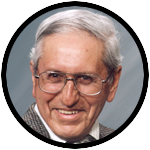
Moises Sandoval
After his recent visit to Mexico, Pope Francis, referring to the wall one of the presidential candidates would build on the U.S. border, said: “A person who thinks only about building walls, wherever it may be, and not building bridges, is not Christian.”
Reflecting on this, it seems clear that the metaphor of building bridges captures the essence of our faith. The Beatitudes, the parable of the good Samaritan and all of the other parables are about building bridges of compassion, empathy, solidarity and love.
That is our challenge, individually and collectively as Christians, in every aspect of life, especially during a contentious election. Our action or inaction has moral consequences.
[hotblock]
In a recent issue of the National Catholic Reporter, Diane Scharper reviews actress Diane Guerrero’s book, “In the Country We Love: My Family Divided,” about her experience growing up in Boston, where her parents had moved after emigrating from Colombia to New Jersey.
She tells of her strong foundation in Catholicism: attending Mass, receiving holy Communion, praying the rosary, going to confession, studying the Catechism of the Catholic Church and reading the Bible. Guerrero wrote that she completely embraced “the Catholic way.”
But one day when she was 14 years old, she came home from school to find both of her parents gone, deported because their visas had expired as they attempted to become citizens. She was completely on her own. No government official checked on her; neither did the church seem to notice Guerrero’s difficulties.
Her story, according to Scharper, is one of anxiety, depression and attempted suicide. But friends built bridges of kindness to her and she survived. Eventually, she was able to launch her acting career. Now 30, Guerrero has appeared in Netflix series like “Orange Is the New Black” and the television series “Jane the Virgin.”
Greatness has not been lost; it is within us, a rich lode ready to be tapped. Imbolo Mbue, an immigrant from Cameroon who just became a citizen, wrote in The New York Times:
“I’ve seen the best of America during my time here. When I was considering dropping out of graduate school because of financial constraints, an American professor helped me get a scholarship so I could complete my master’s degree. Twice, I had an American co-worker give me hand-me-downs because I couldn’t afford to buy clothes. An American employer once said to me, at a time when I was questioning who I was, ‘You are a breath of fresh air.'”
It takes so little to have a decisive impact in another person’s life. Mbue has written a novel titled, “Behold the Dreamers.”
Greatness, however, will be lost if the issues do not stir our compassion and concern. For example, what happens to the 4 million U.S.-born children of the estimated 11 million undocumented immigrants if their parents are deported?
But there are many other issues of life and death: health care for all, abortion and euthanasia, the gun violence that takes 33,000 American lives every year, and the viability of the planet.
Pope Francis told the delegates at World Youth Day: “Today’s world demands that you be a protagonist of history. … (The Lord) wants to turn your hands, my hands, our hands, into signs of reconciliation, of communion, of creation.” And in “Laudato Si’,” he reminds us: “All of us can cooperate as instruments of God for the care of creation.”
Mbue, voting for the first time in her life, wrote: “On Election Day, I will be voting for empathy.”
PREVIOUS: To ‘fly away’ from turbulent times, or stay and transform them?
NEXT: In delaying start of family, a couple weighs the risks



Well meaning article that unfortunately avoids the main issue around immigration and therefore makes it appear that anyone against immigration is mean spirited and anti Christ. This is not true as I hope the author realizes.
The fact of the matter is that no one is against immigration that is legal so let’s start clarifying that this is not what we are talking about. That leaves what are Catholics supposed to do when people knowingly break our immigration laws?
I believe the official Catholic answer to this question is that Catholics are expected to respect and obey their laws, including the law’s enforcement. That is not to say that there can’t be accommodations for legitimate exceptions, but that seems to have been brushed aside here. For example I seem to recall that the candidate who is referenced, the wall builder, is on record as saying that he was open to this, except for criminals and the like. Why was that omitted?
The bottom line here is that Laws (like Morals) are not relative to emotion or sentimentality, like feeling sorry. If they were, there would over time be mass chaos, anarchy, economic misery, violence and death. And our country’s identity would cease to exist. I don’t think anyone wants that.